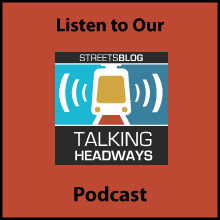Try Our Daily Newsletter for Free
National Links: Missing Middle Not Enough
Each week we write a piece with the most interesting articles of the week for Greater Greater Washington and syndicate it to Urban Milwaukee and Streets.mn. We take the most clicked posts of the week from The Overhead Wire daily and write about the most interesting ones. Follow beyond the crease to
read up on some of this week’s most interesting pieces.
Vehicle ownership is growing in America’s biggest, most transit-oriented cities: From 2012 to 2017, the rate of car ownership outpaced population growth in most cities, all while transit ridership has been decreasing. However, notable cases like Seattle are witnessing a rise in car-free and “car-light” households, defined as having more workers than cars. (Bruce Schaller | CityLab)
Eliminating single-family zones won’t provide enough density: If we are going to solve America’s housing affordability crisis, “missing middle” housing can only take us so far. With an average building lifetime of 50 years, Joe Cortright argues that housing must be designed for the long term, rather than occupying sites with underbuilt density for decades. (Joe Cortright | City Observatory)
The transit project pipeline is full again for 2019: 89 transit projects total more than 830 miles of fixed-guideway transit, including heavy rail, light rail, bus rapid transit, and commuter rail. From Panama City to Toronto, 23 of these projects are slated to open this year. (Yonah Freemark | The Transport Politic)
Level of service metric officially out in California: Car delay will no longer be a criterion of environmental impact for development projects in California. Instead, a section of the California Environmental Quality Act was rewritten to establish that the number of vehicle miles traveled generated by a project is to be used in place of level of service as a measure of a project’s environmental impact. The decision removes one of many hurdles to developing much-needed urban infill housing in the state. (Melanie Curry | Streetsblog California)
Ford’s “futurist” and city planners look past the conventional car: It’s been somewhat of a hard sell at a company that focuses on people purchasing cars, but Ford’s futurist Sheryl Connelly is looking at a future that shares and rents mobility. City planners see the future too, but don’t want to jump too fast into changes to streets and existing mobility that might not be around in 10 years. (Michael Laris | Washington Post)
Quote of the Week
People get in other people’s cars and sleep in other people’s beds. This is a natural expansion of the housing market in the shared economy.
-Los Angeles Developer Ken Kahan talking about a new trend in building shared housing. in the Los Angeles Times. Just don’t call it a dorm.







